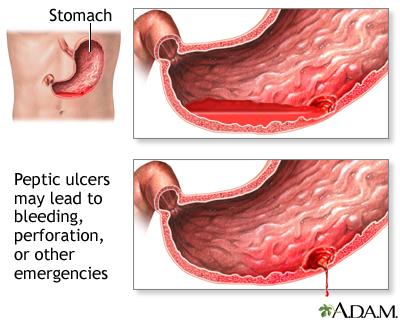
What lifestyle changes can help manage stomach ulcers?
Understanding Stomach Ulcers: Causes, Symptoms, Treatment, and Prevention
Stomach ulcers, also known as peptic ulcers, are painful sores that develop on the lining of the stomach, small intestine, or esophagus. Understanding the causes, symptoms, and treatment options available is crucial for effective management of this condition. In this comprehensive guide, we’ll cover everything you need to know about stomach ulcers, including their impact on your health and practical tips for prevention.
What Are Stomach Ulcers?
Stomach ulcers are open sores that occur in the digestive tract. They can vary in size and can be located in several areas:
- Gastric ulcers: Found on the stomach lining.
- Duodenal ulcers: Located in the upper part of the small intestine.
- Esophageal ulcers: Occur in the esophagus, the tube that connects the throat to the stomach.
Common Causes of Stomach Ulcers
Understanding what causes stomach ulcers can help you avoid them. The most common causes include:
- Helicobacter pylori (H. pylori): A type of bacteria that infects the stomach lining.
- Long-term use of NSAIDs: Nonsteroidal anti-inflammatory drugs like ibuprofen and aspirin can irritate the stomach lining.
- Excessive alcohol consumption: Alcohol can weaken the stomach’s ability to protect itself from acids.
- Smoking: Tobacco use can increase stomach acid production and slow healing.
- Stress: While not a direct cause, high-stress levels can exacerbate symptoms and hinder healing.
Identifying Symptoms of Stomach Ulcers
Recognizing the symptoms of stomach ulcers helps seek timely treatment. Common symptoms include:
- Burning pain in the stomach area, often between meals or at night.
- Nausea and vomiting.
- Loss of appetite and weight loss.
- Bloating or belching.
- Dark or black stools, indicating bleeding.
Diagnosis of Stomach Ulcers
If you suspect you have a stomach ulcer, a healthcare provider will typically perform the following tests:
- Endoscopy: A thin tube with a camera is inserted into the digestive tract to visualize ulcers.
- Barium swallow: An X-ray procedure that helps identify ulcers.
- H. pylori tests: Blood, breath, or stool tests to detect H. pylori infection.
Treatment Options for Stomach Ulcers
Effective treatment is essential for healing ulcers and relieving symptoms. Common treatment options include:
- Proton pump inhibitors (PPIs): Reduce stomach acid production (e.g., omeprazole).
- Antibiotics: To eradicate H. pylori infection if present.
- Antacids: To neutralize stomach acid and alleviate pain.
- Protective medications: Such as sucralfate to coat the stomach lining.
Benefits of Early Treatment
Addressing stomach ulcers early can lead to several benefits:
- Prevention of complications like bleeding or perforation.
- Faster healing and symptom relief.
- Improved quality of life.
Practical Tips for Managing Stomach Ulcers
Here are some practical tips to manage and prevent stomach ulcers effectively:
- Avoid irritants: Limit NSAIDs, alcohol, and smoking.
- Eat a balanced diet: Include fruits, vegetables, and whole grains.
- Practice stress management: Engage in relaxation techniques like yoga or meditation.
- Stay hydrated: Drink plenty of water to stay hydrated.
Case Studies: Real-Life Experiences
Many individuals have successfully managed their stomach ulcers through lifestyle changes and proper treatment. Here are a couple of brief case studies:
| Case Study | Symptoms | Outcome |
|---|---|---|
| John, 35 | Severe stomach pain, nausea | Diagnosed with H. pylori, treated with antibiotics, and symptom relief. |
| Mary, 50 | Bloating, loss of appetite | Changed diet, reduced stress, healed ulcers over six months. |
Conclusion
Stomach ulcers can cause significant discomfort, but with proper understanding, diagnosis, and treatment, they can be effectively managed. By recognizing the symptoms, understanding the causes, and making lifestyle changes, you can significantly reduce the risk of developing ulcers or experiencing complications. If you suspect you have a stomach ulcer, consult a healthcare professional for personalized advice and treatment options. Your health is valuable; take charge of it today!
